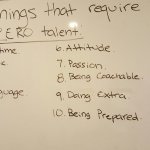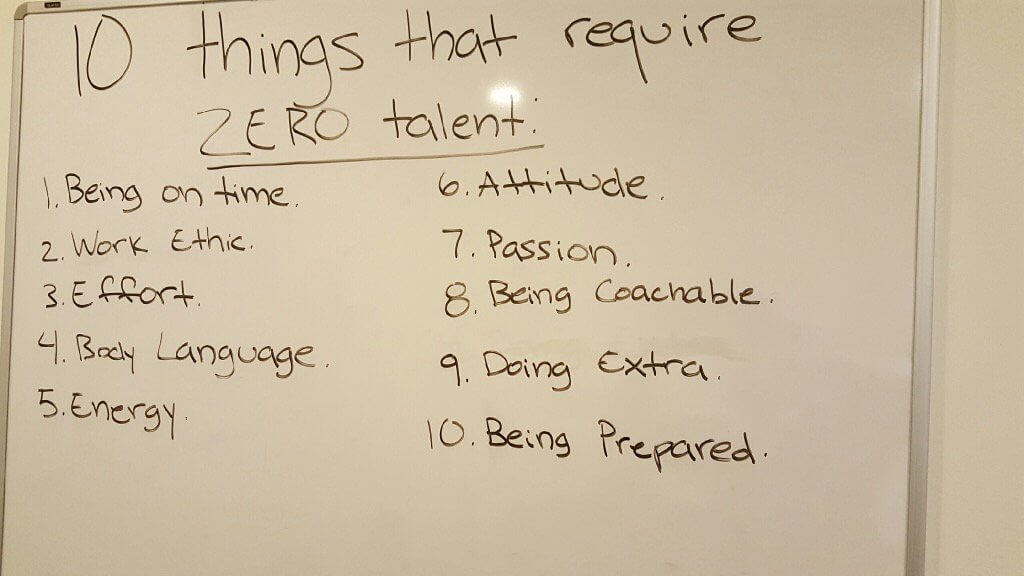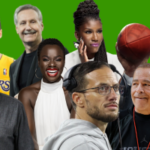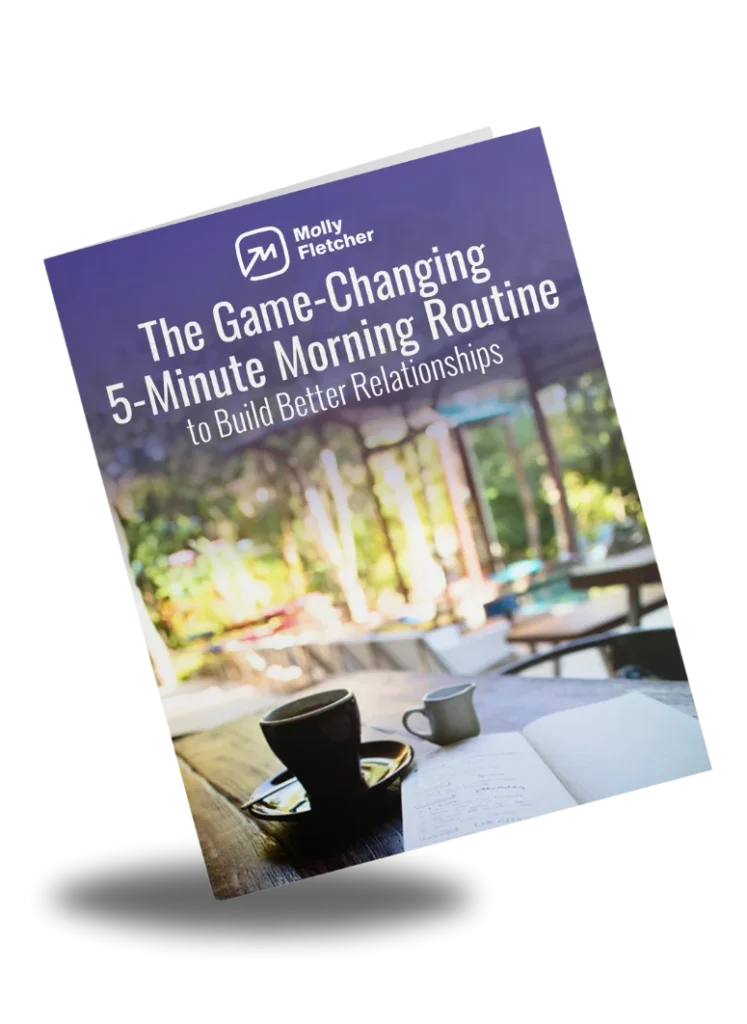 So you have that degree thanks to all your hard work. But what’s next? I know you don’t want to settle for just any job.
So you have that degree thanks to all your hard work. But what’s next? I know you don’t want to settle for just any job.
Since my early days as a sports agent, I have had tons of new college graduates ask me for advice on landing a dream job. So much that I even wrote a book (The 5 Best Tools to Find Your Dream Career). It contains the wisdom I had earned the hard way about embracing curiosity, building relationships, and learning from both successes and failures.
Over time, I’ve come to believe even more in my advice. These six words sum it up:
Ask for advice, not a job.
Here’s why.
At 22, I started out just like everybody does. I tried everything to get a job that would build to a career in the sports business. I polished my resume, wrote professional cover letters and sent them to people that I didn’t know and who didn’t know me. A direct-mail, mass-marketing approach wasn’t working because my resume was one of hundreds, if not thousands, for each job. I responded to ads. But nobody would take the bait. I had to figure out a different way.
As I thought about it, I realized that I didn’t have the relationships I needed to even get on the radar screen of anyone in the sports industry. I realized I would have to build more relationships and more effective relationships with the right people. My dream job wouldn’t come to me. I had to pursue it—and pursue it daily.
I took my $2,000 life savings and moved from Michigan to the exciting sports hub of Atlanta. My most valuable possessions were names of three strangers who I thought might be able to help me. Not with a job directly, but advice on getting a job.
When I got to Atlanta, I reached out to these three. It wasn’t super hard. Asking for advice is much easier than angling for a job. Advice is free. It’s not a huge commitment.
The main thing you need is authentic curiosity and openness. If you don’t hear and acknowledge the advice, and ask thoughtful follow-up questions, your would-be mentors will consider you a waste of time.
My first three advisers listened to my questions and referred me to other people they knew who might be able to help me. I realized these introductions were invaluable, so it became my goal to gain three new introductions from each person who offered me advice. So those three names quickly became 9 and so on.
I began taking my first steps toward meeting people who were doing what I wanted to do. And the closer you can get to people like that, the closer you are to doing the job yourself. You’re not stuck on paper, not just a name on a resume. Asking for advice puts you in a pre-audition, where your desire and interest have gotten you in the door.
“But Molly,” I can hear you saying, “how do I authentically ask someone in power for advice? Won’t that person reject me?”
They might, but fear never got anyone a job. Here’s an example of what I said to Leeman Bennett, the executive director of the Super Bowl Host Committee in Atlanta
“Coach, you must be enjoying preparing for Super Bowl XXVIII. Congrats on bringing this to Atlanta. What an honor for the city. I just graduated from Michigan State and would love to spend 15 minutes with you to get your thoughts and advice on breaking into the sports marketing business in Atlanta.”
Asking for advice isn’t threatening; it’s flattering. Bennett welcomed and encouraged my interest. We met a few days later, and he offered me an entry-level position on the Super Bowl Committee.
This job was definitely not in the big leagues. I answered phones in the office of the Super Bowl Host Committee and made very little in terms of money. But I knew it was a great opportunity for me to get a taste of sports marketing for one of the biggest events on the planet. I also knew that it was a great opportunity for me to meet the key sports executives in town. Who I naturally continued to ask for advice. The more people I asked, the more people I would meet, and the more information I gained.
What this job really offered me was the chance to dialogue with key sports businesspeople in Atlanta who I could ask for more advice. (To reinforce your interest and gratitude, follow up with a handwritten thank you note.)
After the Super Bowl, I was out of work again. Because I knew that relationships were more powerful than resumes, I realized that I needed to meet people with connections. I took a part-time position with a company that took corporate executives through team-building exercises. All the major corporations in town were sending executives through the program, and I knew I would expand my network even further. Many agreed to meet up to share their advice on my career goals.
My relationships helped me secure informational meetings with executives from Chick-fil-A, Coca-Cola, and UPS. I used these meetings to seek advice on building a career I was passionate about, but also to gain referrals. Asking one executive for advice often led me to an introduction to other executives.
Eventually, asking for advice with genuine curiosity led to being offered jobs. UPS wanted me to join their management training program. Executives at Chick-fil-A wanted me to consider working with sponsorships. Neither position was one I could be passionate about. Even though my money began to run out, I let it pass.
As my money began to run out, pressure mounted. But each day I followed my game plan. I carefully maintained the relationships and continued to find ways to build new ones. Day after day, I did research, read about the sports business, made phone calls, and respectfully tapped into my contacts.
I created great reasons to call people I had met with, and I tactfully reinforced my commitment. My database of names kept growing strictly because I was asking for advice. And the advice was helping me figure out my professional identity (who), niche (what), and purpose (why). This in turn helped me see my greatest possibilities.
An advice meeting led to a sales job in sports media. It was with the CEO of an ESPN licensee that sold instructional CDs. That job didn’t last long because of the Internet boom, and I returned to my advice network.
One referral led me to the owner of a small Atlanta sports agency. Creating this opportunity communicated quite a bit to the agency’s owner about me. That meeting led to my job as a sports agent. A dream job that opened the door to the one I have now.
So you may think that your resume is going to land you the perfect job, but really it’s your relationships.
Sincerely asking for advice is a non-threatening, authentic, affirming way to establish a relationship. It moves you away from the job ad and closer to the action. It is a conversation where you can let your curiosity shine and find out what might be possible that you did not even know about.
Asking for advice then becomes not just a technique for collecting career information but a catalyst for personal growth. Your curiosity may cause your dream job to change.
To sum up, as you go out in the world seeking your best first job (which most likely won’t be your last one!) stay focused on these six incredibly important words:
Ask for advice, not a job.
Molly Fletcher helps inspire and equip game changers to dream, live and grow fearlessly. A keynote speaker and author, Molly draws on her decades of experiences working with elite athletes and coaches as a sports agent, and applies them to the business world. Her e-learning courses spark both personal growth for individuals and corporate development for organizations. Sign up here to receive our monthly newsletter.
















